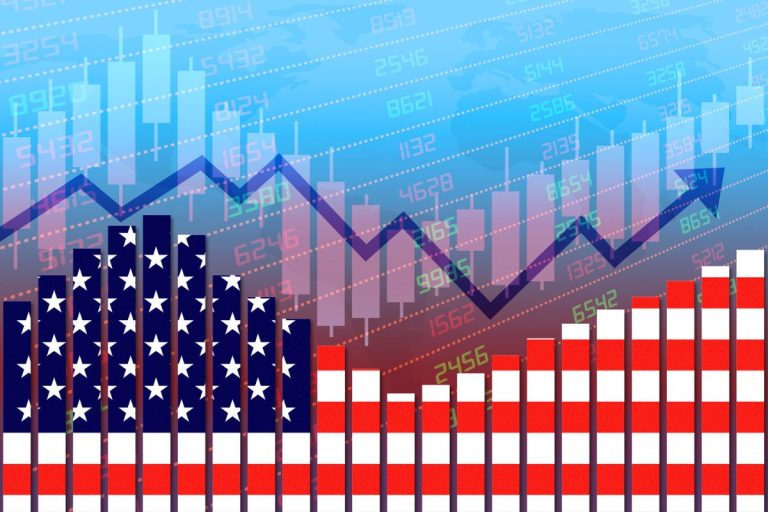US stock markets are poised for a strong rebound following an unexpected move by President Donald Trump to lift tariffs on smartphones and laptops. The decision, which was made late on a Friday, could provide much-needed relief to tech companies, including Apple and Nvidia, who had been bracing for a potential hit to their bottom lines due to the tariffs. This temporary exemption is likely to have a significant impact on investor sentiment and market performance in the coming days.
Exemption Sparks Optimism for Tech Giants
The exemption from tariffs applies not only to smartphones but also to laptops, semiconductors, and chips. This reprieve is expected to give a boost to companies like Apple and Nvidia, whose products are among the most affected by Trump’s tariff regime. For tech companies that rely heavily on Chinese manufacturing, the decision to suspend tariffs could translate into a short-term gain.
The exemption, which is valid for 90 days, comes after mounting pressure from Republican lawmakers. Concerns about the potential backlash from voters over rising smartphone prices played a role in the president’s decision. In fact, US retailers import around 80% of all smartphones, many of which come from China, a country that had previously been subject to tariffs totaling up to 145%.
With the exemption in place, products like smartphones, laptops, hard drives, and some chips will now avoid the hefty tariffs imposed on imports from China. This move could potentially soften the blow for companies that have been grappling with rising costs due to trade tensions and tariffs on Chinese goods.
A Temporary Relief Amid Ongoing Trade Tensions
While the announcement of the tariff exemption has been widely welcomed by the tech industry, it’s important to note that the relief may only be temporary. The exemption is set to last for 90 days, and it’s still unclear whether separate tariffs will be negotiated for specific products. President Trump has suggested that he may introduce a sector-specific tax for items like smartphones and laptops.
Speaking aboard Air Force One, Trump claimed that the decision would allow the US to “win a lot of money,” emphasizing that other countries, particularly China, had been the main beneficiaries of the previous tariffs. However, the long-term impact on the tech sector remains uncertain, as Trump’s administration continues to focus on shifting manufacturing and production away from China.
China Responds to the Tariff Exemption
As expected, China reacted swiftly to the tariff exemption, imposing a retaliatory 125% tariff on all US exports. This move is part of the ongoing trade conflict between the two largest economies in the world. However, Chinese officials have referred to the suspension of mobile phone tariffs as a “small step” toward easing tensions in the broader trade dispute.
US Secretary of Commerce Howard Lutnick has stated that the temporary suspension of tariffs could pave the way for a sector-specific tax on products like smartphones. He emphasized the need for the US to “not rely on China for the critical products” it requires, particularly when it comes to the semiconductor industry.
Lutnick’s comments signal that, despite the temporary tariff break, the US administration is still keen on reshaping global supply chains and reducing dependence on China. His remarks also indicate that the exemption could be short-lived, and a more targeted tariff structure might soon follow.
Tech Giants Feel the Pressure
The decision to impose tariffs on Chinese imports earlier this year had a significant impact on big tech stocks like Apple, Microsoft, Nvidia, Amazon, Tesla, Alphabet (Google’s parent company), and Meta Platforms (Facebook’s parent company). These companies saw a collective loss of around $2.1 trillion in market value, a drop of 14% since the tariffs were introduced.
But since Trump suspended the tariffs for some products—excluding China—tech companies have started to recover. The suspension has given companies more flexibility to import smartphones from countries like India, avoiding the steep tariffs that had previously weighed on their financials.
Looking Ahead: What’s Next for the Tech Sector?
While the temporary tariff suspension has brought a glimmer of hope to the tech sector, the overall outlook remains uncertain. The key question is whether this will lead to a lasting change in the administration’s trade policy or if it will simply serve as a temporary measure to ease tensions ahead of the 2025 election cycle.
For now, tech investors are breathing a sigh of relief, as stocks like Apple and Nvidia are likely to see gains in the short term. However, with trade tensions still looming and the potential for sector-specific tariffs, the situation remains fluid. Traders and analysts will be keeping a close eye on the next steps from the US and China, as well as how companies adjust their strategies to navigate these ongoing global trade disputes.
In the coming weeks, we can expect to see more volatility in the markets, but for now, the temporary suspension of tariffs has brought a much-needed sense of stability to US tech stocks, setting the stage for a potential market rebound.


